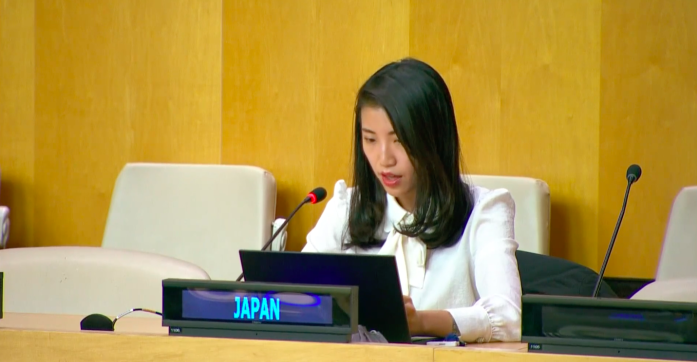南・東南アジア加盟国との国連テロ対策委員会執行事務局(CTED)の活動に関する国連テロ対策委員会(CTC)公開ブリーフィングにおける杉原書記官ステートメント
令和4年2月14日

(As delivered)
Thank you for convening this informative briefing. As a country that has been staunchly supporting counter-terrorism (CT) efforts in South and Southeast Asia, Japan attaches great importance to this opportunity. Let me also take this occasion to congratulate CTED’s successful mandate renewal last December.
Terrorism remains one of the most serious threats to international peace and security despite decades of global CT efforts. The effective mitigation of terrorist threats is crucial for the regional peace, security, and prosperity. Through our implementation of relevant Security Council resolutions and the Global Counter-Terrorism Strategy resolutions, Japan has supported a wide range of CT projects in South and Southeast Asia, partnering with UN bodies such as CTED, UNOCT, and UNODC. The fact that we have supported more than 80 projects in the region over the last three years alone is a testament of our commitment.
One of the key areas of our assistance, among others, is to ensure criminal justice while breaking the cycle of violence. To prevent future terrorism, not only bringing terrorists to justice but also facilitating the social and economic reintegration of perpetrators and those associated is essential, and a clear understanding on how to develop effective prosecution, rehabilitation and reintegration (PRR) strategies is key. In line with SCR2396, Japan has supported CTED’s initiative in Southeast Asia that contributed to enhancing comprehensive and tailored PRR strategies of beneficiaries. Its outcome also fed into a global PRR document that will help Member States around the globe navigate the complexities of the PRR development and implementation.
Another area of support is to counter online terrorist activities. As they exploit cyberspace for recruitment, propaganda, and financing, Japan sees a growing need for enhancing Member States’ online investigation capacities. To this end, Japan has contributed to the UNOCT’s global programme to improve the investigative skills of law enforcement officials in South and Southeast Asia through capacity-building on the use of open-source intelligence and awareness-raising about terrorists’ exploitation of AI. Besides providing tailored workshops, this project produced two useful documents: a report on the harnessing of AI to combat terrorists’ internet misuse with a focus on South and Southeast Asia, and a comprehensive handbook on online CT investigation. We welcome these tangible, long-lasting outcomes.
There are other salient areas that need to be tackled as part of our CT efforts in the region, including maritime security. Japan continues to work on these issues in close cooperation with relevant stakeholders.
In conclusion, together with Japan’s ongoing effort to prevent Afghanistan from becoming a hotbed for terrorism, let me reaffirm our continued commitment to support South and Southeast Asian Member States counter terrorist threats through bilateral and multilateral cooperation and dialogues.
Thank you.
